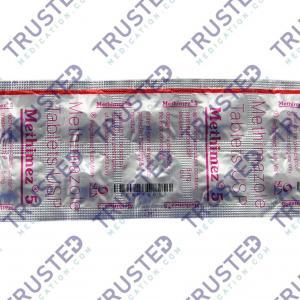
Cardiomyopathy is a disorder affecting the myocardium or heart muscle. The heart muscle weakens and loses its ability to adequately pump blood. This can lead to heart failure symptoms. Over time, it can worsen, and if left untreated, it can lead to serious and life-threatening complications.
What causes Cardiomyopathy?
Several factors can lead to this condition, including:
· High blood pressure
· Viral infections
· Alcohol abuse
· Certain medications
· Coronary artery disease
· Chronic diseases such as diabetes and thyroid disorders
What are the Symptoms of Cardiomyopathy?
The symptoms may differ based on the type and severity of the illness. Common symptoms include:
- Rapid or fluttering heartbeats.
- Swelling of the legs, feet, ankles, neck veins, and stomach area.
- Cough while lying down.
- Bloating of the stomach area due to fluid buildup.
- Trouble lying flat to sleep.
- Dizziness.
- Fatigue, even after getting rest.
- Fainting
- Shortness of breath or difficulty breathing during activity or rest.
- Experience chest pain after vigorous exercise or big meals.
How Does it Differs with Other Heart Conditions?
Cardiomyopathy differs from other heart conditions in that it specifically affects the heart muscle. Thus, making it difficult for the heart to pump blood effectively. Other ways it differs from other heart conditions include:
· It typically progresses gradually and may worsen rapidly in some cases.
· It can affect individuals at a young age.
· It can be linked to diseases affecting other organs besides the heart.
· It often stems from gradual alterations in heart structure over time.
· Dilated cardiomyopathy is a primary reason for heart transplants.
What are the Different Types of Cardiomyopathy?
There are several types of cardiomyopathy, including:
1. Dilated cardiomyopathy: This is very common, and it occurs when the cavity of the heart is enlarged and stretched. Thus, impairing the heart’s ability to pump correctly and rest appropriately.
2. Hypertrophic cardiomyopathy: This type occurs when the muscle in the left ventricle thickens, making it difficult for the heart to fill with blood. Thus, preventing blood flow to the rest of the body. It can cause damage to the heart’s valve, allowing blood to seep backward through it.
3. Restrictive cardiomyopathy: This type occurs when the heart muscle stiffens and is unable to fill with blood correctly.
Arrhythmogenic right ventricular dysplasia: This type is rare. It occurs when the right ventricle’s muscular tissue dies and is replaced by fat or scar tissue, leading to arrhythmias.
Who is at Risk for Cardiomyopathy?
Certain factors can increase the risk of developing this condition, including:
· Obesity
· Long-term high blood pressure
· Genetics
· Substance abuse
· Diseases like diabetes, thyroid problems
· Connective tissue disorder
· Infections
How is Cardiomyopathy Treated?
While there is no cure for cardiomyopathy, treatment can help manage symptoms and slow the progression of the disease. Treatment options may include:
· Lifestyle changes– Lifestyle changes may include a healthy diet, regular exercise, and limiting alcohol and caffeine intake.
· Medications– Medications may include ACE inhibitors, beta-blockers, or diuretics.
· Devices- Devices may include pacemakers or implantable cardioverter-defibrillators.
· Procedures- Procedures may include septal myectomy or heart transplant.
How is Cardiomyopathy Prevented?
Acquired types of cardiomyopathy can be prevented by:
· Maintaining a healthy diet.
· Getting adequate sleep.
· Avoiding alcohol and illegal drugs.
· Managing existing health conditions like diabetes, hypertension, or high cholesterol levels.
· Managing stress
· Exercise








